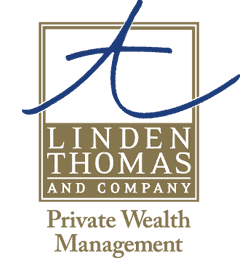

They build a portfolio tilted toward growth up to retirement, thinking they will move more toward bonds when they retire. The challenge occurs when the markets move down before retirement or fixed-income yields are low, or even worse, both occur in tandem. As investors set out to build a portfolio all too often, we think in terms of short-term rather than long-term goals. To create an efficient portfolio that meets your long-term goals, one must consider the what-ifs of investing! What if there is a market correction before you retire? What if rates are low at retirement?
In understanding how bonds work and their benefits, we at Linden Thomas & Co. know what not to do, what to do, and the pros and cons. Balance and perspective will allow you as an investor to have insight into why building a private bond portfolio can and will benefit your portfolio both pre-retirement and post-retirement. In this review, we will cover 15 subjects.
Table of Contents
- Introduction
- Why bonds are essential
- Pre-retirement benefits
- Post-retirement benefits
- Why bond direct ownership is essential
- Down-market benefits
- What happens if rates go up?
- How do rating and yield impact results?
- What do you do if bonds go down?
- Why should affluent investors avoid bond funds and ETFs?
- What happens to bond funds if rates and small investors collide
- What impacts net income when investing in pooled bond funds
- Why should investors be warned to avoid a high-income drawdown?
- Three hidden factors that kill investor income
- Warnings of relying on equity growth for income
Why bonds are essential
Pre-retirement benefits of bonds
Investors' pre-retirement accumulation period can often be 20-40 years. Building a bond portfolio before retirement provides another avenue for saving and reinvesting. This long-term approach, similar to investing in rental homes, can lead to a steady increase in income and buying power. The more income you have, the more buying power. The income the bonds pay allow you to buy more bonds. (The more you earn, the more you buy). Ideally, one wants to build an efficient bond portfolio before retiring.
Over the years, Linden Thomas & Co. Has helped hundreds of investors build bond portfolios before retirement, so once you cross over to retirement, your income needs have are already been addressed established.
Post-retirement benefits
Over the last 30 years, the equity markets have had countless -10% down markets and -20% down markets can be expected every few years. The challenge is that if investors rely on equities for income, when markets move down, the % of assets required to fund distributions increases. What may have been a portfolio distribution rate of 5% can become an unsustainable 7% rate in the face of a large 30% - 40% pullback in the stock market. If a portfolio is down -30 yet has another 7% annual distributions over several years, then portfolio recovery is long-gated and sometimes impossible.
Conclusion: Whether you're an affluent investor or not, building an efficient bond portfolio can greatly relieve the uncertainty of relying solely on equities.
Direct bond ownership is essential
Downmarket benefits
What happens when interest rates go up?
How does rating and yield impact results?
The highest rating on bonds is AAA. An AAA rating is often associated with government bonds. While rating is essential, bonds are nothing like stocks. The higher the rating, the less the yield. One example was GE years ago; their bonds carried a high rating yet a low yield. Investors were willing to have low results due to perceived safety. Yet when GE was downgraded, the bonds sold off due to the benefits of safety had failed. Spreading risk between different issues focusing on yield and quality are all important. Genuinely, the higher the quality, the less the yield!
One risk associated with high rated bonds, like AAA or AA, is that if they get downgraded to a lower rating like an A-, the perception of safety can disappear and cause a deeper selloff in the market.
What to do if bonds go down
Why affluent investors should avoid bond funds and ETFs
If you're a wealthy investor with $2 million plus in assets, you should never consider pooled bond funds for a few reasons. First, no direct ownership means no control. You are buying a portfolio of pre-existing bonds that are subject to low yield! Second, you have no maturity benefits because you don't own the bonds directly. Third, nothing is tailored to your income needs! Fourth, you are subject to small investors selling in down markets, forcing the bond manager to sell bonds at discounted prices before maturity. Fifth, hidden fees like expense rations, trading costs, spreads on trades, and high advisor costs can sometimes cut your net income in half. Lastly, you have no transparency.
